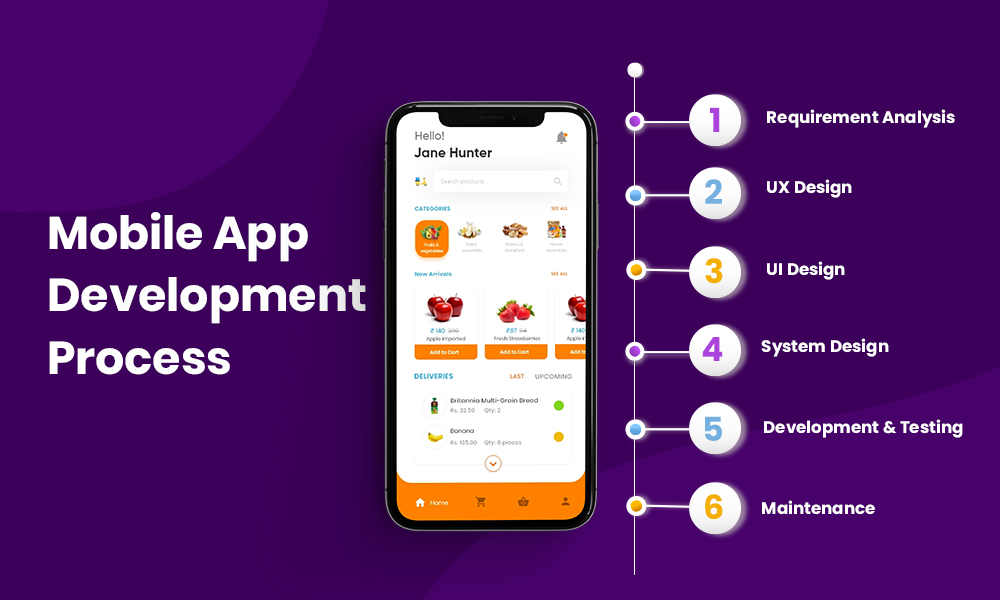MOBILE APPS
write brief introduction about web based application
ios application development
iOS application development refers to the process of creating software applications specifically for Apple’s mobile operating system, iOS. iOS powers Apple’s iPhone, iPad, and iPod Touch devices, making it a prominent platform for app development. iOS developers utilize programming languages like Swift or Objective-C along with Apple’s integrated development environment (IDE) called Xcode to design and build applications for various purposes, ranging from productivity tools to entertainment apps and everything in between. These developers adhere to Apple’s strict guidelines and standards to ensure seamless integration with iOS devices and optimal user experiences. iOS application development offers opportunities for developers to reach a large and engaged user base through the Apple App Store, providing innovative solutions to meet the diverse needs of iOS device users worldwide.
Android apps development
Android app development is the process of creating software applications specifically for devices running the Android operating system. As the most widely used mobile operating system globally, Android offers a vast market for app developers. Android developers typically use programming languages like Java or Kotlin, along with development tools like Android Studio, to design and build applications for smartphones, tablets, smartwatches, and other Android-powered devices. These developers adhere to Google’s guidelines and best practices to ensure compatibility, performance, and security of their apps across various Android devices and versions. Android app development encompasses a wide range of categories, including social media, gaming, productivity, and e-commerce, providing developers with opportunities to innovate and reach millions of users through the Google Play Store. With its open ecosystem and diverse user base, Android app development continues to be a dynamic and rewarding field for developers worldwide.
android-wear-development
Android Wear development involves creating software applications specifically custom for wearable devices powered by Google’s Android Wear operating system. These devices include smartwatches, fitness trackers, and other wearable gadgets that run on Android Wear. Developers use programming languages like Java or Kotlin, along with Android Studio and the Android Wear SDK, to build apps that provide unique and interactive experiences on wearable devices. Android Wear apps offer functionalities such as notifications, health tracking, voice commands, and seamless integration with smartphones. Developers focus on designing user interfaces optimized for smaller screens and intuitive interactions suitable for wearable devices. With the growing popularity of wearable technology, Android Wear development presents opportunities for developers to create innovative and practical solutions that enhance users’ daily lives and seamlessly integrate with their mobile experiences.
iBeacon application development
iBeacon application development involves creating software applications that leverage iBeacon technology, a type of Bluetooth Low Energy (BLE) beacon developed by Apple. iBeacons are small, wireless transmitters that emit signals to nearby smartphones and other devices equipped with Bluetooth technology. These signals can trigger location-based actions or deliver proximity-based content to users’ devices. iBeacon applications are utilized in various industries, including retail, hospitality, healthcare, and tourism, to provide personalized experiences, indoor navigation, targeted marketing messages, and more. Developers typically use programming languages like Swift or Objective-C, along with Apple’s development tools like Xcode, to build iBeacon-enabled apps for iOS devices. iBeacon application development offers opportunities for developers to create innovative solutions that enhance customer engagement, streamline operations, and deliver seamless experiences in physical spaces. With the increasing adoption of iBeacon technology, the demand for skilled iBeacon app developers continues to grow.
swift application development
Swift application development refers to the process of creating software applications for Apple’s platforms using the Swift programming language. Swift is a powerful and intuitive programming language developed by Apple specifically for iOS, macOS, watchOS, and tvOS app development. It offers modern syntax, safety features, and performance optimizations, making it an ideal choice for building high-quality applications. Swift application development typically involves using Apple’s integrated development environment (IDE) called Xcode, along with frameworks and libraries provided by Apple’s ecosystem. Developers leverage Swift’s expressive syntax and powerful features to create engaging user interfaces, implement complex functionality, and optimize performance for various Apple devices. With its growing popularity and continuous evolution, Swift application development provides developers with the tools and resources to build innovative and impactful applications that delight users across Apple’s platforms.
xmarian application development
Xamarin application development refers to the process of creating cross-platform mobile applications using the Xamarin framework. Developed by Microsoft, Xamarin allows developers to write code in C# and use a single codebase to build apps for iOS, Android, and Windows platforms. Xamarin uses native user interfaces, providing a native look and feel to the apps, while sharing a significant portion of the codebase across different platforms. Xamarin developers can leverage the extensive .NET ecosystem, including libraries, tools, and APIs, to streamline development and enhance productivity. Xamarin.Forms, a part of the Xamarin framework, enables developers to create shared user interface code for all platforms, further simplifying the development process. With Xamarin, developers can build powerful, high-performance mobile applications efficiently, reaching a broad audience across multiple platforms while minimizing development time and effort.
hybrid apps development
Hybrid app development involves creating software applications that combine elements of both native and web applications. These apps are built using web technologies like HTML, CSS, and JavaScript and are wrapped within a native container, allowing them to be installed and run on various platforms. Popular frameworks such as Ionic, React Native, and Xamarin enable developers to create hybrid apps that offer a native-like user experience while benefiting from the flexibility and cross-platform compatibility of web technologies. Hybrid apps leverage the device’s browser engine to render the user interface, providing access to native device features through plugins or APIs. This approach allows developers to write code once and deploy it across multiple platforms, reducing development time and cost. Hybrid app development offers a practical solution for businesses looking to reach a broad audience with a single codebase while maintaining a consistent user experience across different devices and platforms
